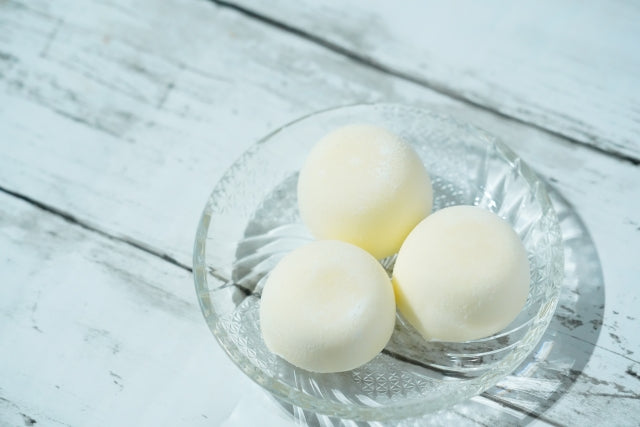
Special Japanese Winter Sweets: Distinctive Tastes to Enjoy the Cold Season
Share
Japanese winter brings with it many sweets that warm the heart even in the cold. In Japanese culture that values seasonal changes,
Winter desserts have a special meaning and are a way to enjoy the season.

- Traditional Winter Sweets: A Blend of Tradition and Seasonal Feel
Yukimi daifuku is a popular dessert consisting of ice cream covered in sticky rice cake. The name “yukimi” means “snow watching,” making it perfect for winter. Eating cold yukimi daifuku in a warm room is part of a Japanese winter tradition. Winter Daifuku
While regular daifuku is available year-round, the strawberry daifuku is especially popular in winter. It contains sweet bean paste and fresh strawberries inside a soft rice cake, with the perfect blend of the tartness of the strawberries and the sweetness of the paste.
- Christmas sweets
Made with soft sponge topped with whipped cream and strawberries, this is a winter staple. During the Christmas season, specially designed cakes are sold in bakeries and kiosks. Bush de Noel
This cake, which means "Christmas cake," is French in origin but popular in Japan. It features a tree-trunk design and is made of chocolate-wrapped cake.
- New Year's Eve Sweets
Hanabira mochi is a traditional dessert used in the New Year's tea ceremony. It consists of white rice cake filled with red bean paste and gobo, and is served to celebrate the beginning of the new year.
- Winter Chocolate Sweets
Many Japanese companies launch winter-specific flavors. They feature seasonal flavors such as green tea, caramel, and white chocolate. The rich-tasting “fresh chocolate” is especially popular in winter.
- Sweets to accompany the nap
Both are desserts consisting of sweet red bean soup with rice balls. On cold days, eating warm zenzai helps warm the body from the inside. Abstract: Feeling Japanese culture through special winter sweets
Japanese winter sweets are not just sweets, they are a cultural symbol of enjoying the season. For Arab readers, trying winter sweets may be
Japanese is a good opportunity to experience the four seasons of Japan. We encourage you to taste Japanese winter sweets!
